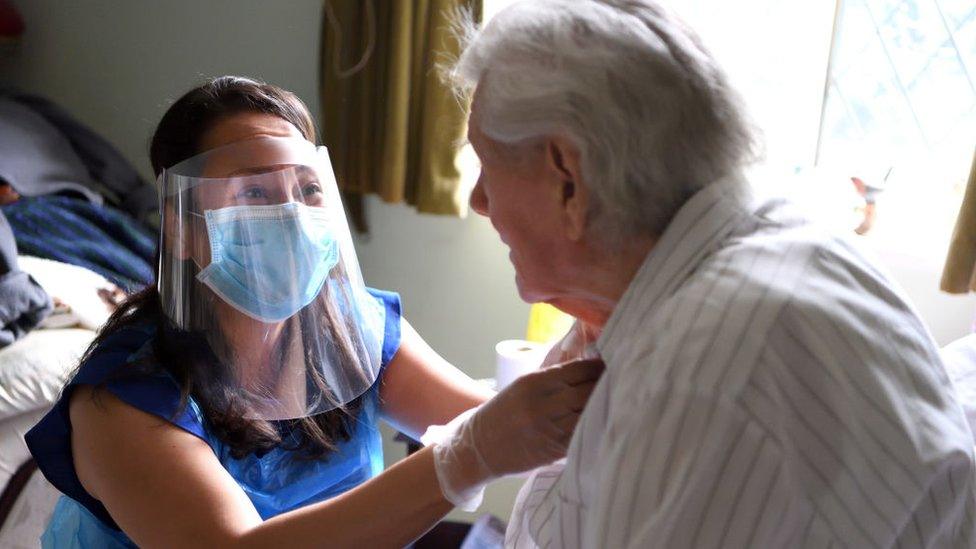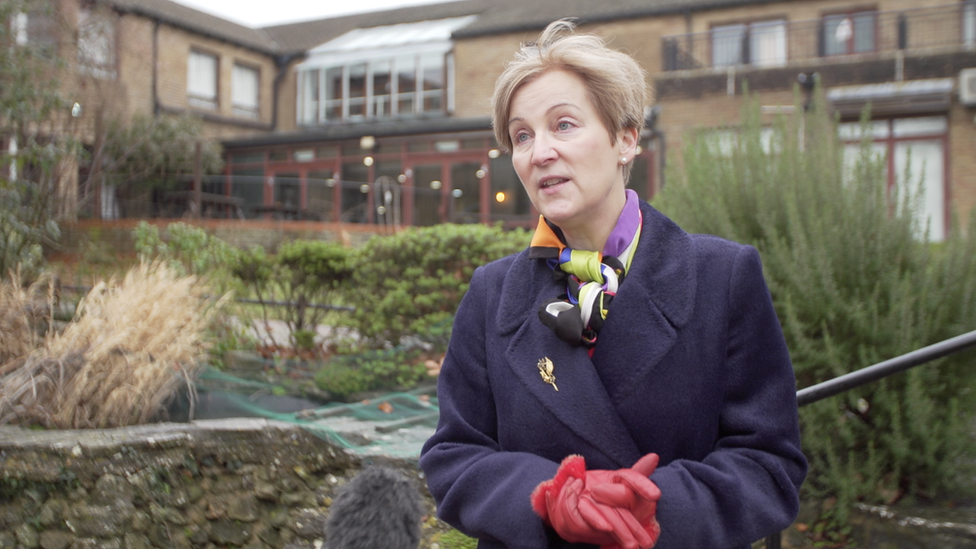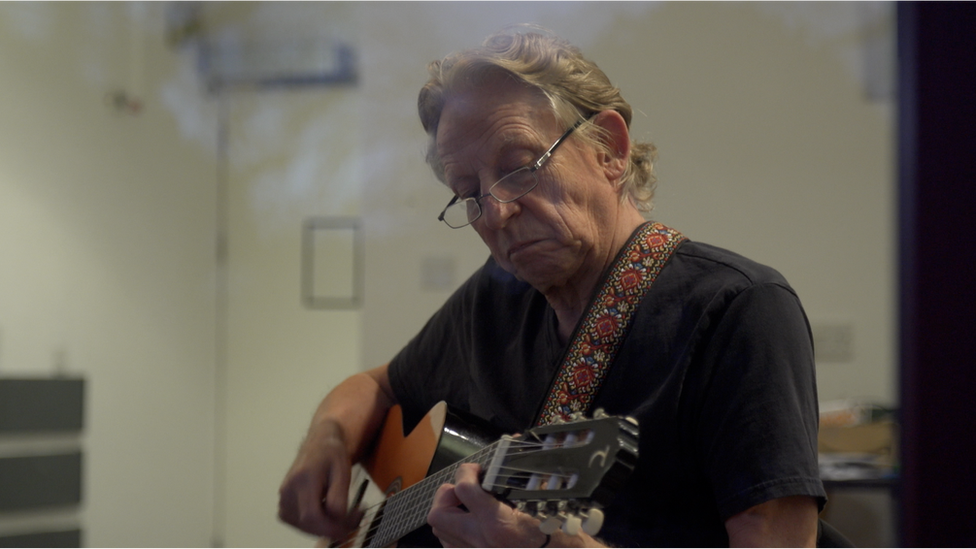Covid-19: Insurance fears stop care homes taking patients
- Published

Despite the huge need to free up space in hospitals, some care homes say insurance issues make it impossible for them to accept Covid-19 patients.
In October, the government launched a scheme for designated care homes to take patients recovering from the virus but insurance is a stumbling block.
Sir David Behan, head of the UK's largest care home company, HC-One, says insurance has become a major concern.
The government says it is working to resolve the issue.
"We are aware the adult social care insurance market is changing in response to the pandemic, and recognise some care providers may encounter difficulties as their policies come up for renewal," said a Department of Health and Social Care spokesperson.
One Hampshire care home says it will have to stop taking patients within days because its insurance will expire.
Waterside House in Netley, Hampshire usually provides holidays and respite care for people with disabilities.
But since the autumn it has been taking Covid-positive patients discharged from hospitals on the south coast.
They are looked after on a separate floor from other residents, and the home has had to meet high infection control standards.
Home manager Sarah Knight said demand for the 31 beds is unparalleled and added: "I've been in nursing a long, long time, and I have never known anything like this.
"People end up in an ambulance sat outside hospitals for hours and hours, or they end up on a trolley in A&E in a corridor for hours and hours.
"By offering the best that we've got here, we can reduce some of that burden."

Jan Tregelles is chief executive of the charity Revitalise which runs Waterside House
The government originally hoped there would be 500 designated care homes taking in Covid-positive patients.
But Waterside House is one of only 129 which have been set up to take those who have not completed 14 days in isolation.
However, its public indemnity insurance protection, which it needs in case someone contracts Covid there, runs out at the end of January.
Waterside House is run by the charity Revitalise, whose chief executive, Jan Tregelles, said they have tried everything, but will soon have to start turning away people.
"It's shocking," she says. "We are truly helpless. We have a fantastic team of nurses and colleagues already.
"The facilities are here, everything's arranged and we can't step up to support our communities at this time."
'Very safe'
One resident, Alan Washbourne, who has been living at Waterside House since he was discharged from hospital during the first wave of the pandemic, said: "I feel quite safe here."
He is not on the Covid floor of the home, and added: "If I were to go to somewhere else, which is possible, I might not feel quite so safe."

Alan Washbourne has been at Waterside House since April last year
After so many deaths last spring, many care homes will not consider taking patients who are Covid-positive, even with extra infection control measures.
Meanwhile, growing numbers of staff are off sick or self-isolating, leaving care homes facing shortages.
And many are also finding it difficult to get the public indemnity insurance.

Sir David Behan is chairman of HC-One, the UK's largest care home provider
Since November, HC-One, which is the UK's largest care home provider, has had to cover its own Covid risks because it cannot get the insurance.
Sir David said it is one of the reasons why they have not taken part in the designated places scheme.
"You've got solicitors' firms advertising, taking cases up against care companies," he says.
"So, this isn't a theoretical risk that there may be proceedings, it's an actual risk, and therefore we need cover.
"The NHS wouldn't operate without similar liability cover and that's what we need to see, and I think governments have a role to play working with the insurance industry to work to find a solution."
The Department for Health and Social Care said it was making efforts to determine what actions it could take.
"Our priority is to ensure everyone receives the right care, in the right place, at the right time," said a spokesperson.